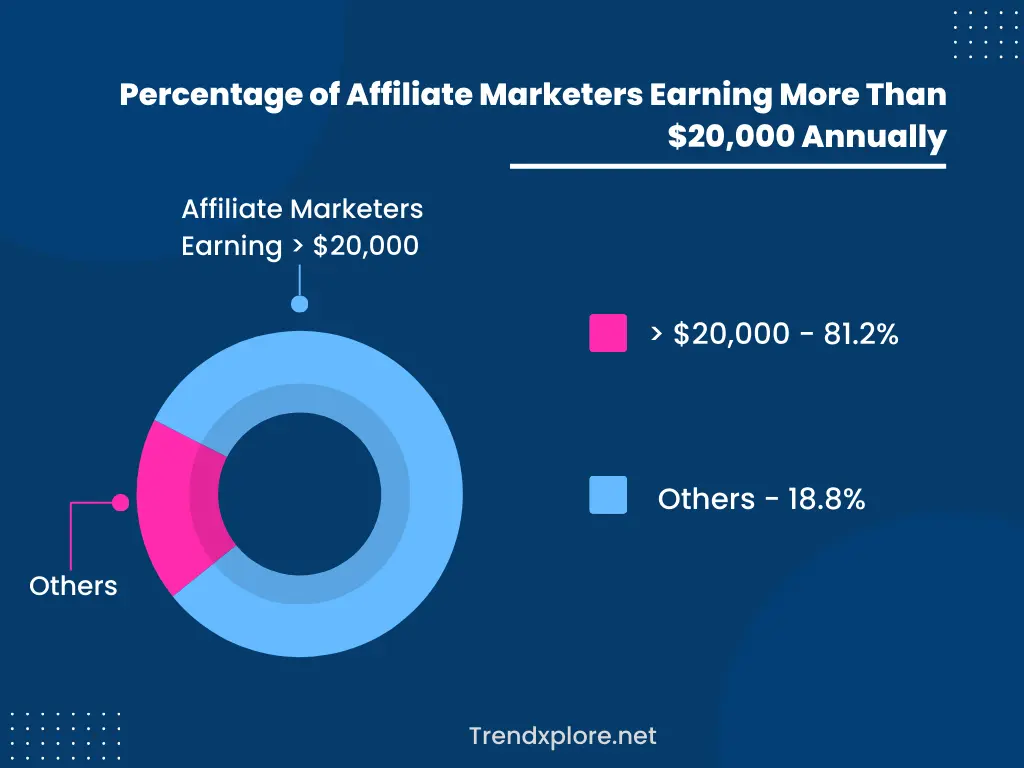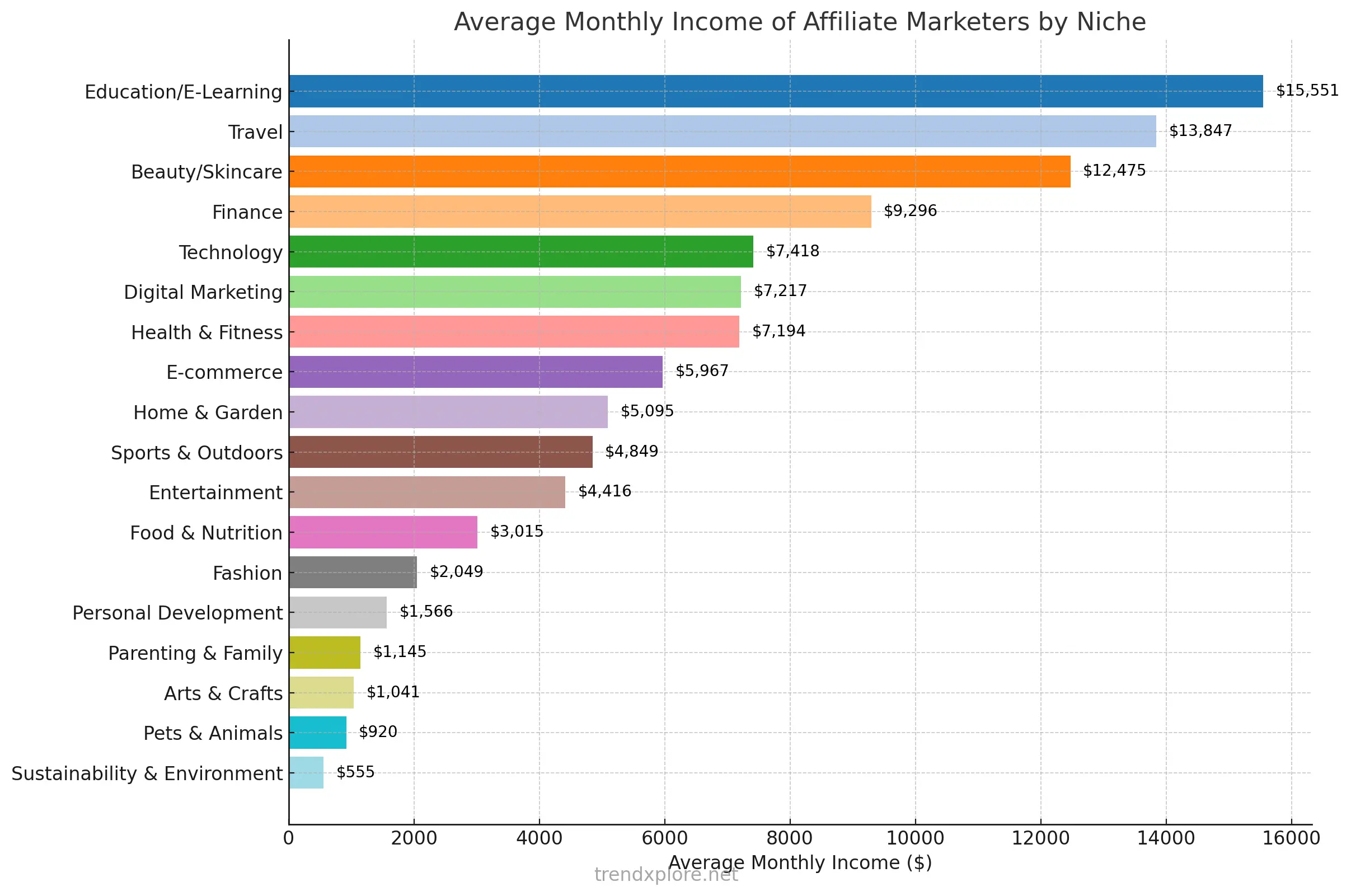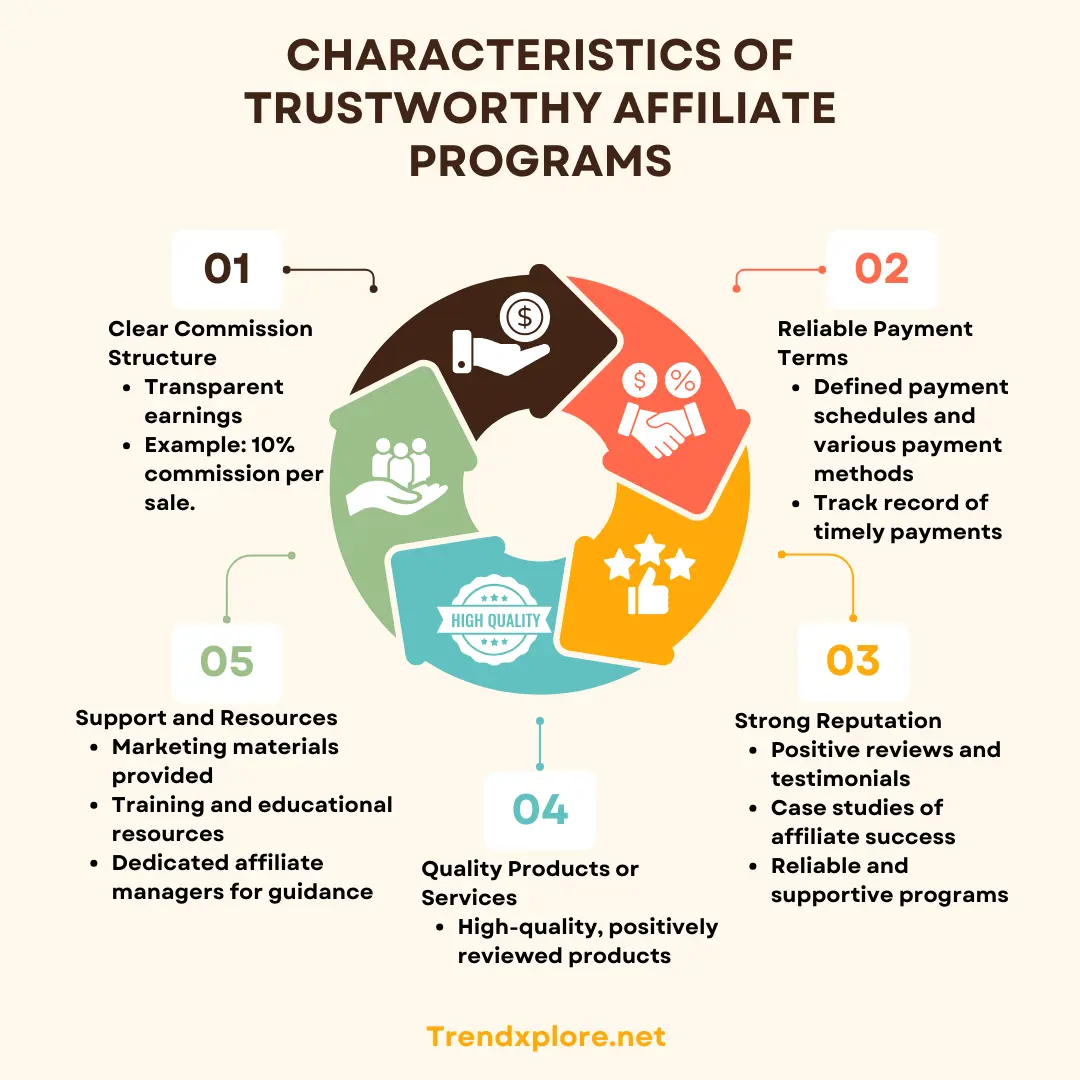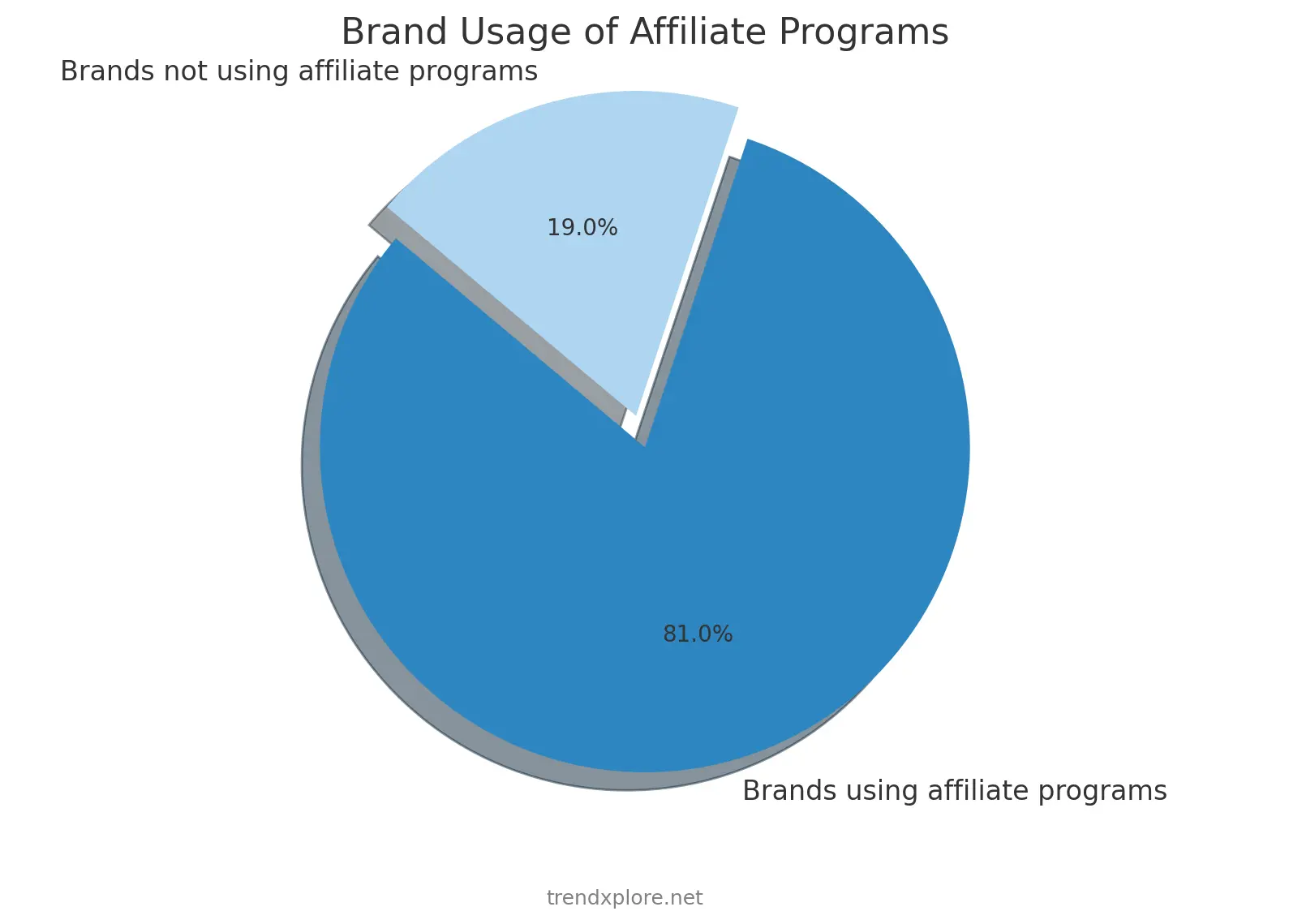Have you ever wondered, “Is affiliate marketing legit?” or “Is affiliate marketing a pyramid scheme?” These are questions many people ask when they hear about this popular way to make money online.
Affiliate marketing is a booming industry and for a good reason. It offers a chance to earn income by promoting products you love. But is it as straightforward as it seems? Let’s dive in and explore what affiliate marketing is all about.
1. Is Affiliate Marketing Legit? – Brief Overview
Definition and Basic Concept
If you’ve ever told someone where you got something they admired and they later purchased it based on your recommendation, you’ve essentially done affiliate marketing for free—just without earning a commission.
Affiliate marketing is a performance-based marketing strategy. In simple terms, you earn a commission by promoting someone else’s product or service. You find a product you like, share it with your audience, and earn a piece of the profit for each sale you generate. It’s a mutually beneficial arrangement for both affiliates and merchants.
Did you know that 81.2% of affiliate marketers are earning over $20,000 a year? That’s right—affiliate marketing can be a seriously lucrative gig.

Key Components
In affiliate marketing, there are three main players:
- Merchant (Advertiser): The creator or owner of the product or service. They provide affiliates with marketing materials and affiliate links.
- Affiliate (Publisher): The marketer who promotes the merchant’s products or services through various channels like blogs, social media, and websites.
- Consumer: The end user who buys the product or service through the affiliate’s link.
How Affiliate Marketing Works
The process is pretty simple. Here’s how it breaks down:
- Join an Affiliate Program: First, you sign up for an affiliate program. Many companies offer these programs, so you can choose one that fits your interests.
- Choose Products to Promote: Once you’re in the program, you select products or services you want to promote. It’s essential to pick items that match your audience’s needs and interests.
- Share Affiliate Links: After choosing products, you get unique affiliate links. You share these links on your blog, social media, or email newsletter.
- Earn Commissions: When someone clicks your link and makes a purchase, you earn a commission. The commission rate varies depending on the program and product.
2. Choosing the Right Niche
Choosing the appropriate niche is essential in affiliate marketing, as it can determine your success or failure. When you pick a niche that suits your interests and skills, you are more likely to succeed. But what exactly makes a niche the right choice? Let’s explore why selecting the best niches for affiliate marketing is so important.
How Niche Selection Impacts Affiliate Marketing Success
Targeted Audience
The right niche helps you reach a targeted audience. When you focus on a specific group of people, your marketing efforts become more effective. For example, if you choose a niche like fitness for older people, you can create content that directly addresses their needs. This approach attracts the right visitors to your site, increasing the chances of making sales.
Reduced Competition
Some niches are less competitive than others. By choosing a niche with less competition, you can stand out more easily. You won’t have to compete with big brands or countless other affiliates. For example, promoting eco-friendly products for pet owners might have less competition than general pet products.
Higher Conversion Rates
When you understand your niche well, you can create content that resonates with your audience. This understanding leads to higher conversion rates. If you know what your audience cares about, you can recommend products that solve their problems. For instance, if you choose the best niches for affiliate marketing like vegan beauty products, you’ll know exactly what your audience wants.
Passion and Motivation
Choosing a niche you’re passionate about keeps you motivated. When you enjoy what you do, it doesn’t feel like work. You’ll be more likely to create quality content and engage with your audience. This enthusiasm shows in your marketing efforts and can lead to greater success.
Long-Term Growth
Focusing on the right niche can lead to long-term growth. As you become an expert in your niche, people will trust your recommendations more. This trust can lead to a loyal following and consistent income over time. By picking one of the best niches for affiliate marketing, you set yourself up for sustained success.
Examples of Niche Selection
- Tech Gadgets for Travelers: If you love technology and travel, this niche allows you to explore both. You can review portable chargers, noise-canceling headphones, and travel-friendly laptops.
- Home Fitness Equipment: With more people working out at home, this niche is booming. You can promote yoga mats, resistance bands, and online workout subscriptions.
- Sustainable Fashion: If you’re passionate about the environment, sustainable fashion is a great niche. You can recommend eco-friendly clothing brands and highlight ethical practices.
Authority Hacker reveals that the most competitive niches often bring the highest profits. Leading the pack are Education/E-Learning ($15,551), Travel ($13,847), and Beauty/Skincare ($12,475), each with impressive average monthly incomes.

3. Addressing “Is Affiliate Marketing Legit?” or “Is affiliate marketing a pyramid scheme?”
1. Is Affiliate Marketing Legit?
While “Is affiliate marketing legit?” is a fair question, especially with so many misconceptions floating around. Some think it’s a scam or similar to a pyramid scheme. Let’s address these concerns and clear up any misunderstandings.
Overview of Misconceptions About Affiliate Marketing
Get-Rich-Quick Scheme
Some people believe that affiliate marketing is a quick way to make money. While it can be profitable, it requires time, effort, and strategy. It’s not a get-rich-quick scheme. Success in affiliate marketing comes from understanding your niche and audience and promoting the right products.
Easy Money with No Work
Another misconception is that you can make money without doing anything. Affiliate marketing involves creating valuable content, building an audience, and regularly engaging with them. It’s a business, and like any business, it takes dedication and hard work.
Unethical or Dishonest
Some think affiliate marketing is shady or dishonest. However, most affiliate marketers follow ethical practices and promote products they genuinely believe in.
Is Affiliate Marketing a Pyramid Scheme?
Affiliate marketing is often mistaken for a pyramid scheme, but they are quite different.
Definition of Pyramid Schemes
A pyramid scheme is a fraudulent investment scam. In a pyramid scheme, participants earn money by recruiting others rather than selling a product or service. The scheme relies on continuous recruitment, and eventually, it collapses when it becomes impossible to recruit new members.
How Pyramid Schemes Differ from Affiliate Marketing
- Product Focus: Affiliate marketing involves promoting actual products or services. In contrast, pyramid schemes focus on recruitment and have no real product to sell.
- Earning Potential: In affiliate marketing, you earn commissions based on sales made through your links. In pyramid schemes, the emphasis is on recruiting others, and earnings are not tied to product sales.
- Legitimacy: Affiliate marketing is a legitimate business model used by many companies. Pyramid schemes are illegal and unsustainable.
Legal Distinctions and Ethical Considerations
Affiliate marketing operates within legal boundaries. Companies with affiliate programs have terms and conditions that affiliates must follow. Ethical affiliates disclose their relationships with companies and are transparent about their promotions.
Examples to Illustrate the Differences
Affiliate Marketing Example: Amazon Associates
Amazon Associates is a well-known affiliate program. Affiliates earn commissions by promoting Amazon products. The focus is on product sales, not recruitment. This program is open to anyone and follows legal guidelines, making it a legitimate way to earn money online.
Pyramid Scheme Example: BurnLounge
BurnLounge was a company that operated a pyramid scheme disguised as a music store. Participants earned money by recruiting others to buy into the program rather than selling music. In 2012, the FTC shut it down, highlighting the illegal nature of pyramid schemes.
4. How to Identify Legitimate Affiliate Programs
Finding legitimate affiliate programs is crucial for success in affiliate marketing. Knowing how to spot trustworthy programs can save you time and ensure you promote products with confidence. Let’s explore the characteristics of legitimate affiliate programs, red flags to watch out for, and how to evaluate the credibility of affiliate networks.
Characteristics of Trustworthy Affiliate Programs

Clear Commission Structure
A legitimate affiliate program provides a clear and transparent commission structure. You should easily understand how much you will earn for each sale or action. For example, a program might offer a 10% commission on every sale made through your referral link. A clear commission structure helps answer the question, “Is affiliate marketing legit?”
Reliable Payment Terms
Trustworthy programs have reliable payment terms. They specify the payment schedule and methods, such as direct deposit or PayPal. Look for programs with a track record of paying affiliates on time.
Strong Reputation
Reputable programs often have positive reviews from other affiliates. Look for testimonials or case studies that showcase affiliate success stories. Programs with a solid reputation are usually more reliable and supportive.
Support and Resources
A legitimate affiliate program offers support and resources to help you succeed. This support might include marketing materials, training, or dedicated affiliate managers. Access to these resources can make your marketing efforts more effective.
Quality Products or Services
The best affiliate programs promote quality products or services. Make sure the products you promote have positive reviews and offer value to customers. This focus on quality enhances your credibility and boosts sales.
Red Flags to Watch Out For
High Upfront Fees
Be cautious of programs that require high upfront fees to join. Legitimate affiliate programs are usually free or charge a nominal fee for access to resources. Avoid programs that seem more interested in your money than in product sales.
Lack of Transparency
If a program lacks transparency in its terms and conditions, it might not be trustworthy. Look for clear information about commissions, payment terms, and product offerings. Avoid programs that make vague promises or lack detailed information.
Overemphasis on Recruitment
Programs that focus more on recruitment than on product sales could be pyramid schemes. Legitimate affiliate programs prioritize selling products or services, not recruiting others.
Unrealistic Promises
Be wary of programs that make unrealistic promises of quick or easy money. Affiliate marketing requires effort and time to succeed. Programs that guarantee instant wealth are likely too good to be true.
Evaluating the Credibility of Affiliate Networks
Research and Reviews
Start by researching the affiliate network. Look for reviews from other affiliates to see if the network has a good reputation. Forums and social media can also provide insights into the network’s credibility.
Program Variety
Credible affiliate networks offer a wide range of programs in various niches. This variety allows you to choose the best niches for affiliate marketing that align with your interests and expertise.
User-Friendly Platform
A legitimate network provides a user-friendly platform for managing your affiliate activities. The platform should offer tools for tracking clicks, conversions, and payments. A well-designed interface makes it easier to monitor your progress.
Responsive Support
Reliable networks offer responsive customer support to assist you with any issues. Whether you have questions about payments or need technical help, support should be accessible and helpful.
Examples of Trustworthy Affiliate Networks
- ShareASale: Known for its wide range of programs and reliable payment terms, ShareASale is a popular choice among affiliates. They offer tools for tracking performance and provide strong support.
- CJ Affiliate (formerly Commission Junction): CJ Affiliate is another reputable network that offers a variety of programs in different niches. They provide robust tracking tools and have a solid reputation for timely payments.
- Rakuten Marketing: This network is known for its quality merchants and user-friendly platform. Rakuten offers comprehensive resources and support to help affiliates succeed.
5. Success Stories and Case Studies
Affiliate marketing can be a powerful way to earn money online, and many successful marketers have proven its potential. Let’s look at real-life success stories, hear from industry experts, and review some statistics that demonstrate why “affiliate marketing is legit” and show that “affiliate marketing is not a pyramid scheme.”
Real-Life Examples of Successful Affiliate Marketers
Pat Flynn – Smart Passive Income
Pat Flynn is a well-known figure in the affiliate marketing world. After losing his job, he started Smart Passive Income to share his journey and insights. Pat’s blog and podcast provide valuable information and have generated substantial income through affiliate marketing. He transparently shares his earnings and strategies, making it clear that “affiliate marketing is legit.”
Michelle Schroeder-Gardner – Making Sense of Cents
Michelle Schroeder-Gardner turned her personal finance blog, Making Sense of Cents, into a successful business through affiliate marketing. By recommending financial products that align with her readers’ needs, she earns significant commissions. Michelle’s income from affiliate marketing is over $50,000 per month, showing that affiliate marketing can be highly profitable.
John Lee Dumas – Entrepreneurs on Fire
John Lee Dumas, the host of the podcast Entrepreneurs on Fire, uses affiliate marketing to monetize his platform. He promotes products and services that benefit his audience of aspiring entrepreneurs. John’s approach combines high-quality content with effective product promotion, proving that affiliate marketing is a legitimate and successful business model.
Examples of Successful Affiliate Websites
- Dog Food Advisor: This site reviews dog food without explicit product endorsements, using affiliate links subtly to maintain audience trust.
- Skyscanner: A travel site that earns through its search aggregator and optimized travel blog.
- Ruled.me: Focuses on the keto diet, providing recipes and tips, and monetizes through Amazon Associates.
- Minimalist Baker: Offers quick, easy recipes with Amazon affiliate links for ingredients.
- SafeWise: Covers home security topics and uses Amazon Associates and other affiliate programs.
Quotes from Industry Experts
Brian Dean – Founder of Backlinko
Brian Dean, founder of Backlinko, provides a clear view on affiliate marketing: “Affiliate marketing is a popular marketing strategy for individuals because of the fact that payment is performance-based.” Brian’s perspective reinforces that affiliate marketing is a legitimate and performance-oriented strategy.
Harsh Agrawal – CEO of ShoutMeLoud
Harsh Agrawal, CEO of ShoutMeLoud, adds: “In making money online, affiliate marketing is a skill-based approach, anyone could learn that. It is one of those segments of the online world, that doesn’t require any degree or formal education.” Harsh’s perspective highlights that affiliate marketing is accessible and legitimate, regardless of formal education.
Statistical Data Supporting the Legitimacy of Affiliate Marketing
- Affiliate Marketing Industry: The global affiliate marketing industry is currently valued at over $17 billion.
- Brand Usage: 81% of brands use affiliate programs to enhance brand visibility and drive sales.

- Market Growth: By 2027, the industry is projected to grow to a market size of $27.78 billion.
- Online Orders: In the U.S., affiliate marketing accounts for 16% of all online orders.
- Revenue Source: 31% of web publishers identify affiliate marketing as a top revenue source.
- Sales Contribution: Major brands derive 5% to 25% of their total online sales from affiliate marketing.
- Channel Success: 20% of brand marketers consider affiliate marketing their most successful channel.
- Profitable Niches: The three most profitable affiliate niches are Education/E-Learning, Travel, and Beauty/Skincare.
Well, stats don’t lie and I hope this gives a clear perception of whether “affiliate marketing is legit” or rather “affiliate marketing is not a pyramid scheme.”
6. Potential Risks and Challenges
Affiliate marketing can be a lucrative venture, but it’s not without its risks and challenges. Understanding these pitfalls can help you navigate the affiliate landscape more effectively. Let’s discuss some common challenges faced by beginners and strategies to overcome them.
Common Pitfalls in Affiliate Marketing
Choosing the Wrong Niche
Many affiliates make the mistake of selecting a niche they aren’t passionate about or that lacks demand. This choice can lead to disengagement and poor performance. To succeed, pick a niche you are interested in and that has a proven market demand. This approach helps affirm that “affiliate marketing is legit” when done thoughtfully.
Ignoring Audience Needs
Some affiliates focus more on products than on understanding their audience’s needs. Promoting irrelevant products can result in low conversions. To avoid this pitfall, prioritize your audience’s preferences and recommend products that solve their problems.
Overlooking SEO
SEO (Search Engine Optimization) is vital for driving organic traffic. Ignoring SEO can limit your reach and visibility. Optimize your content with relevant keywords and meta tags to improve search engine rankings.
Spamming Affiliate Links
I was once guilty of this but paid the price. It wasn’t a funny experience. Flooding your content with affiliate links can alienate your audience. Instead, integrate links naturally within valuable content. Building trust with your audience by offering honest reviews and useful information is essential to showing that “affiliate marketing is legit.”
Challenges Faced by Beginners and Strategies to Overcome Them
| Challenges | Strategy |
|---|---|
| Building an Audience: Many beginners struggle to build an audience, which is crucial for generating sales. | Create high-quality, valuable content that addresses your audience’s needs. Use social media, guest blogging, and email marketing to grow your reach. Consistency and engagement are key to building a loyal following. |
| Understanding Affiliate Marketing Strategies: The learning curve for affiliate marketing can be steep. Beginners may find it hard to understand how to choose products, track performance, and optimize campaigns. | Educate yourself through online resources such as blogs, courses, and webinars. Learn from experienced marketers and apply their strategies to your efforts. Start small and gradually scale your campaigns as you gain confidence. |
| Balancing Content and Promotion: Finding the right balance between content creation and product promotion can be tricky. Too much promotion may turn off your audience. | Focus on creating informative and engaging content that naturally incorporates affiliate products. Use a mix of content types, such as tutorials, reviews, and guides, to provide value while promoting products subtly. |
| Staying Motivated: It’s easy to lose motivation when results don’t come quickly. Affiliate marketing requires persistence. | Set realistic goals and track your progress. Celebrate small wins and stay committed to your long-term vision. Join online communities or forums to connect with other affiliate marketers and share experiences and tips. |
7. Legal and Ethical Considerations
Affiliate marketing is a popular way to earn income online, but it’s essential to follow legal and ethical guidelines. Transparency and honesty are crucial in this industry. Understanding disclosure requirements like FTC guidelines helps answer questions like “Is affiliate marketing legit?” and “Is affiliate marketing a pyramid scheme?”
Overview of Disclosure Requirements (e.g., FTC Guidelines)
FTC Guidelines for Affiliate Marketing
The Federal Trade Commission (FTC) sets rules to ensure that affiliate marketers are honest about their relationships with companies. These guidelines aim to make sure consumers know when content includes affiliate links, helping them answer questions like “Is affiliate marketing legit?”
When to Disclose
Affiliates must disclose their relationships with merchants whenever they promote a product or service for a commission. This disclosure is important because it builds trust and clarity. For example, if you write a blog post about a product and use affiliate links, mention that you may earn a commission on purchases through those links.
How to Disclose
Disclosures should be easy to understand and placed where readers can see them. Use clear language such as, “This post contains affiliate links, and I may earn a commission if you make a purchase.” Avoid hiding disclosures in fine print; instead, make them prominent.
Social Media and Video Content
When promoting affiliate products on social media or video platforms, disclosures are still necessary. Use hashtags like #ad or #affiliate in social media posts to clarify your affiliate relationships. For videos, include a verbal disclosure at the beginning and a written disclosure in the description.
Importance of Honesty and Transparency in Affiliate Marketing
Building Trust with Your Audience
Honesty and transparency are key to building trust with your audience. When you openly disclose your affiliate relationships, you show your audience that you value their trust. This openness helps answer doubts like “Is affiliate marketing legit?” and builds a loyal following.
Enhancing Credibility
Being honest about your affiliations boosts your credibility. When your audience knows you prioritize transparency, they are more likely to trust your product recommendations. Credibility is crucial for long-term success in affiliate marketing.
Ethical Considerations
Promote products you genuinely believe in. This ethical approach benefits both you and your audience. Focus on choosing products that align with your values and interests. Avoid promoting products solely for profit without considering their quality or relevance.
Avoiding Legal Issues
Following disclosure, guidelines helps you avoid legal problems. Failing to comply with FTC regulations can lead to fines or legal action. By adhering to these guidelines, you protect yourself and your business.
Concluding Thought
In conclusion, many people wonder, “Is affiliate marketing legit?” The answer is yes, affiliate marketing is a legitimate business model that allows individuals to earn money by promoting products and services. However, it is essential to choose the right programs and niches to succeed.
Some people confuse affiliate marketing with pyramid schemes. So, it’s crucial to understand the difference. “Is affiliate marketing a pyramid scheme?” No, it is not. Pyramid schemes focus on recruiting others to make money, while affiliate marketing is about promoting products and earning commissions on sales. By being informed and following ethical practices, anyone can find success in affiliate marketing.
FAQs Section
What is affiliate marketing?
Affiliate marketing is a way to earn money by promoting products or services from other companies. You receive a commission for each sale made through your unique referral link.
Is affiliate marketing legit?
Yes, affiliate marketing is a legitimate way to make money online. Many successful marketers earn a full-time income through affiliate programs.
Is affiliate marketing a pyramid scheme?
No, affiliate marketing is not a pyramid scheme. In affiliate marketing, you earn money by promoting products, while pyramid schemes rely on recruiting others to make money.
How do I choose the right affiliate program?
Look for programs with good reputations, fair commission structures, and quality products. Read reviews and check for any red flags.
What are the risks of affiliate marketing?
Some risks include choosing a low-quality program, misrepresenting products, and potential changes in commission rates. Research and stay updated to minimize risks.
Can beginners succeed in affiliate marketing?
Yes, beginners can succeed by learning, being patient, and applying best practices. Many resources are available to help you get started.
What tools do I need for affiliate marketing?
Basic tools include a website or blog, an email marketing platform, and social media accounts. These help you promote products effectively.






